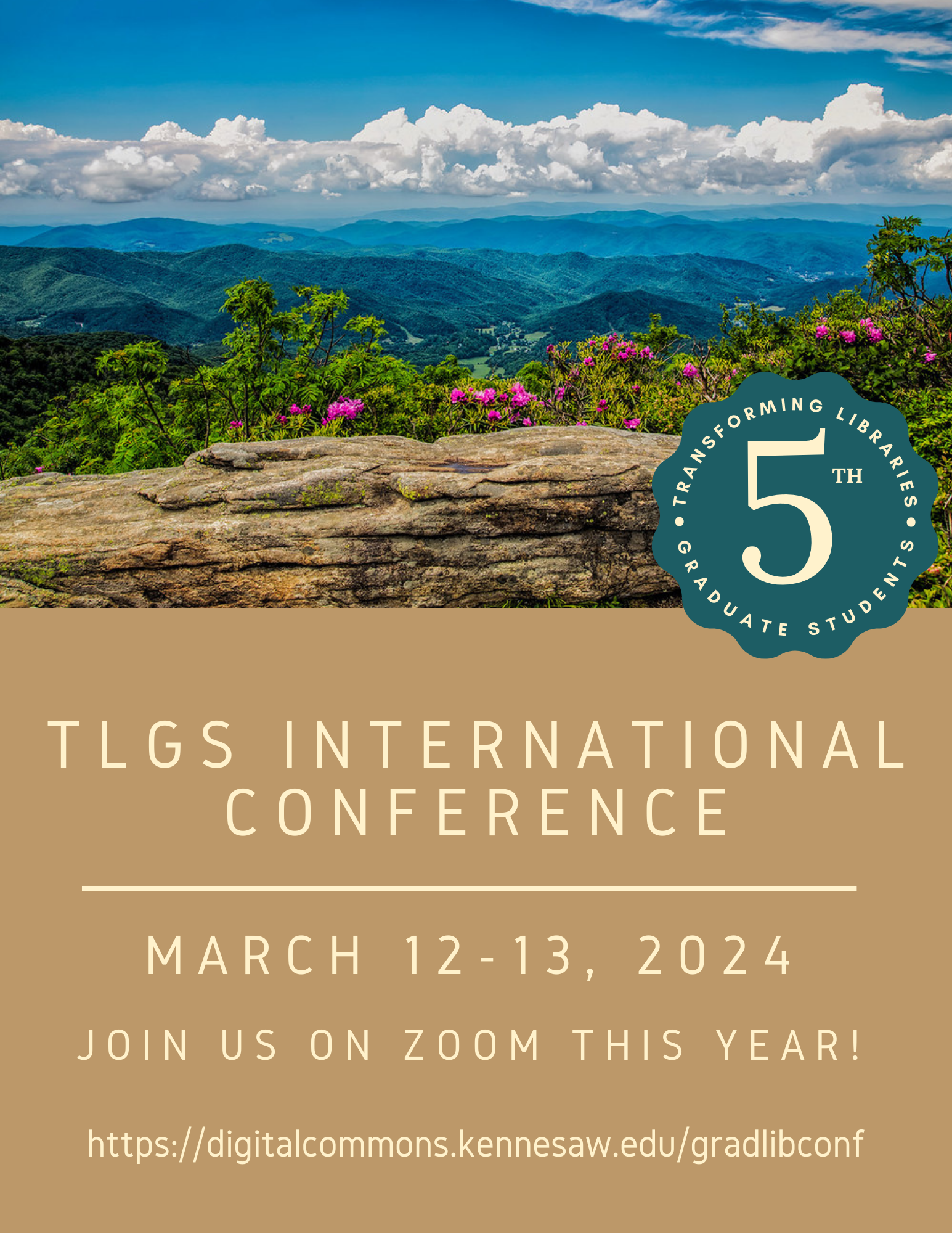Start Date
3-17-2022 3:30 PM
End Date
3-17-2022 4:00 PM
Keywords
Scholarly communications, academic libraries, promotion and tenure, graduate students, professional development
Description of Proposal
Many academic libraries are increasingly called upon to support and provide training and instruction to graduate students on scholarly communications issues such as open access, copyright, research data, identifying legitimate versus predatory publishing opportunities, and related topics. Many of these areas align with needs librarians face in their own work, especially for those whose jobs offer opportunities (or requirements) to participate in tenure and promotion processes. In order to meet their own professional development and career needs while also preparing to support the specialized needs of graduate students, librarians must keep abreast of the changing scholarly communications landscape and seek training and education opportunities where needed. To help retain and support their personnel, libraries should be prepared to support them in developing these important skills.
This presentation will discuss the professional development component of a mentoring program for tenure-track faculty librarians at UNC Greensboro (UNCG). Initiated in 2008, this mentoring program transitioned to a rotating coordinator model in 2016; programming for the current cohort has focused heavily on scholarly communication areas, many of which align with content that is being offered to graduate students in separate sessions. This intersection between content for librarians and graduate students was not initially planned, but developed based on needs and direct requests from both constituencies.
In this session, the presenter will discuss this library-based mentoring program’s inception, development, lessons learned, areas of challenge, impacts brought on by the COVID-19 pandemic, and the importance of collaboration in identifying, creating, and delivering needed content to support scholarly communications and promotion and tenure. The session will also address associated opportunities to develop and provide further education on these topics to graduate students. The speaker will encourage conversation about scholarly communications training needs, challenges, and lessons learned among attendees.
Scholarly Communications for Librarians: Developing a Mentoring Program to Support Tenure-Track Library Faculty
Many academic libraries are increasingly called upon to support and provide training and instruction to graduate students on scholarly communications issues such as open access, copyright, research data, identifying legitimate versus predatory publishing opportunities, and related topics. Many of these areas align with needs librarians face in their own work, especially for those whose jobs offer opportunities (or requirements) to participate in tenure and promotion processes. In order to meet their own professional development and career needs while also preparing to support the specialized needs of graduate students, librarians must keep abreast of the changing scholarly communications landscape and seek training and education opportunities where needed. To help retain and support their personnel, libraries should be prepared to support them in developing these important skills.
This presentation will discuss the professional development component of a mentoring program for tenure-track faculty librarians at UNC Greensboro (UNCG). Initiated in 2008, this mentoring program transitioned to a rotating coordinator model in 2016; programming for the current cohort has focused heavily on scholarly communication areas, many of which align with content that is being offered to graduate students in separate sessions. This intersection between content for librarians and graduate students was not initially planned, but developed based on needs and direct requests from both constituencies.
In this session, the presenter will discuss this library-based mentoring program’s inception, development, lessons learned, areas of challenge, impacts brought on by the COVID-19 pandemic, and the importance of collaboration in identifying, creating, and delivering needed content to support scholarly communications and promotion and tenure. The session will also address associated opportunities to develop and provide further education on these topics to graduate students. The speaker will encourage conversation about scholarly communications training needs, challenges, and lessons learned among attendees.



What takeaways will attendees learn from your session?
Participants will consider and compare scholarly communications needs of tenure-track librarians and graduate students.
Participants will consider and compare scholarly communication training at their institutions, including formats, modules, and assessment practices.
Participants will identify potential opportunities for cross-departmental collaboration in support of scholarly communication training and development within their own institutions.